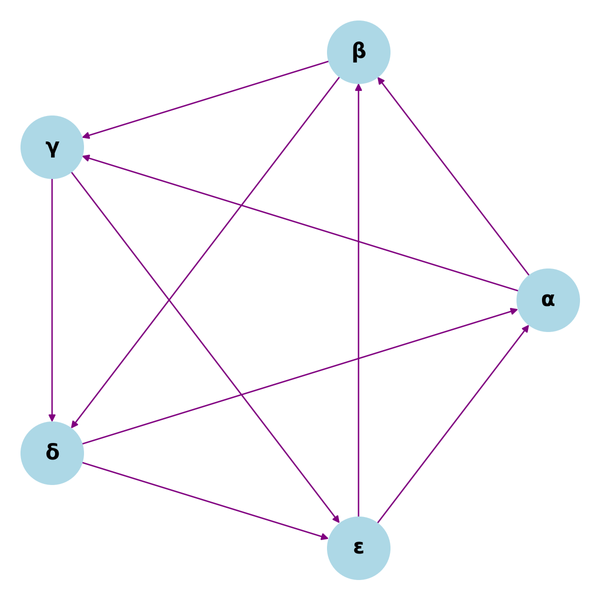Rust vs Go: A Comprehensive Comparison
The best programming language for you.
Introduction
With so many programming languages to choose from, it can be difficult to decide which one to learn next. However, if you're interested in systems programming, you may be wondering whether Rust or Go is the better choice. Both languages have their own strengths and weaknesses, so it's important to consider your own needs and preferences before making a decision. While they share some similarities, there are also some key differences.
This article will compare Rust and Go in terms of their syntax, features, performance, and more. By the end of this article, you'll know more about both languages and be able to decide the one that's right for you.
Let's get started!
Rust
Rust is a programming language that Rust Foundation developed in 2010. It is a statically typed, compiled language that runs on multiple platforms, including Windows, macOS, Linux, etc. Rust is known for its safety features and speed, making it a good choice for system-level programming and embedded development.
How Does It Work?
Rust uses a model of ownership and borrowing to ensure memory safety. Each value in Rust has a variable that is called its owner. The owner is responsible for freeing the memory when it is no longer needed. When a function borrows a value from another function, it takes ownership of the borrowed value. This ensures that the borrower cannot modify the borrowed value without the owner's permission.
Rust also has a strong type system that prevents null pointers and other invalid memory accesses from occurring. This makes it difficult to write incorrect code in Rust.
Go
Go is a programming language developed at Google by a team of engineers led by Ken Thompson and Rob Pike. It was designed to be a more efficient alternative to C++ and address some of the problems they saw with the language. Go is statically typed, meaning that variables must be declared before being used.
This can lead to more verbose code, making the code more predictable and easier to understand. Go also has a garbage collector, which helps manage memory more efficiently.
How Does It Work?
Go uses a model of concurrent programming that makes it easy to write programs that can run across multiple processors. This is because Go was designed with multicore processors in mind. In addition, Go has built-in support for network programming and comes with a large standard library.
What Are The Similarities?
There are a few key similarities between Rust and Go.
- Both languages are statically typed and compiled.
- They both have garbage collectors that help to manage memory more efficiently.
- They are both designed to be more efficient alternatives to C++.
- They both have built-in support for network programming.
What Are The Differences?
Now that we have looked at some of the similarities between Rust and Go, let's look at some of the key differences.
1. Rust Is A More Complex Language Than Go
Rust has a more complex type system and ownership model, making it difficult to learn for beginners. On the other hand, Go is designed to be a simpler language that is easy to pick up.
This can be both a good thing and a bad thing. On one hand, the extra complexity of Rust can make it more difficult to write incorrect code. On the other hand, this same complexity can also make Rust more difficult to learn for beginners.
2. Rust Is Faster Than Go
Rust is typically faster than Go when it comes to runtime performance. This is because Rust uses a more efficient memory management model and has a better type system. However, there are some cases where Go can be faster than Rust.
For example, if you are writing code that needs to run on multiple processors, Go may be a better choice. This is because Go was designed with multicore processors in mind.
3. Differences Between Error Handling In Rust and Go
Rust's error handling system is more robust than Go's because it uses the result type. The result type is an enum that can be either Ok or Err, which makes it easier to debug errors in Rust than in Go. However, the result type is not always the best option for handling errors, and some errors are more difficult to debug in Rust than they are in Go.
This means that when you are writing code in Rust, you have to explicitly handle the case where an error could occur. On the other hand, Go uses the panic/recover system to handle errors. This can lead to less reliable code and more difficulty in debugging.
4. Rust Has More Powerful Abstractions Than Go
Rust has several features that allow you to create powerful abstractions. For example, Rust's trait system allows you to define behaviors that multiple types can share.
This means that you can write code that is more generic and reusable. Go, on the other hand, does not have these features. This means that code written in Go is often more specific and less reusable.
5. Go Is More Widely Used Than Rust
Go is a more popular language than Rust. This is because Go was developed by Google and adopted by many large companies. On the other hand, Rust is still a relatively new language that is not as widely used.
This can be both a good thing and a bad thing. On one hand, it means more resources are available for learning Go. On the other hand, it also means that Rust is often seen as a more niche language.
So, What's The Verdict?
Both Rust and Go have their strengths and weaknesses. If you are looking for a language that is easy to learn, Go may be a better choice. However, if you are looking for a more powerful and efficient language, then Rust may be a better choice.
It depends on your specific needs and preferences. Hopefully, this article has helped you understand the key differences between these two languages.
If you want to stay up-to-date with the latest insights in Cloud-native, DevOps, Cloud, Linux, Golang, Productivity, and more, subscribe to my Weekly Newsletter. You’ll also get access to my tutorials, tips, and guides, as well as resources from other experts in these fields.


